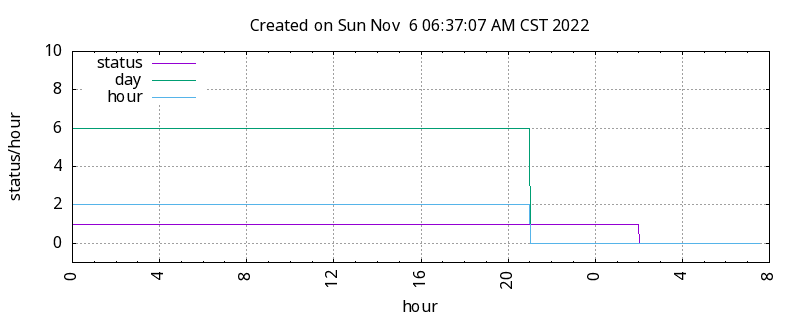
Daylight savings time ends on 6 November which means that stations should begin sending PSIP data to that effect on 7 October The details on how this process should be managed are in ATSC A/65, Annex A and FCC regulations require that all except low power stations follow the standard.
As usual someone gets off to an early start. Not quite so many as in the spring. Probably because October has more days in it than February.
KDTN (RF 29)
KDTN went off the air shortly after midnight and came back at around 5AM. At which point they had changed their DST data.
Late in the day a couple more jumped into the too early camp:
KDTX (RF 21)
KAZD (RF 31)
A very few stations began the process on time:
KTVT (RF 19)
KXAS (RF 24)
KXTX (RF 36)
A few more did it this morning.
WFAA (RF 8)
KTXD (RF 23)
KPXD (RF 25)
KMPX (RF 30)
I somehow missed KFWD but they started before the 7th.
KFWD (RF 9)
I was very surprised to see no change in status since 8 October. But then three stations changed last night. And not in a good way. KFWD, KDTX, and KAZD set the hour and day of the transition back to zero at 9PM last night. Leaving DS_status at 1. Thus signaling that there would not be a transition to standard time at 2AM (DST). Add this to the many other stations ignoring the transition and my DTVPal DVT decided that there wasn't going to be a transition. It had been showing the transition in its schedule data but not after 9PM.
KFWD (RF 9)
KDTX (RF 21)
KAZD (RF 31)
Then they reset DS_status to reflect CST at 2AM (DST). Not the way to do it. So did anyone do it 2AM as required?
WFAA, KTXD, KPXD, and KMPX did. Like this:
WFAA (RF 8)
A few more did it later. KXAS at 2:30AM (DST) KTVT, KDTN, and KXTX at 4AM (DST)
Three stations (KODF, KNAV, and KHPK) offset their GPS time by one hour at 2AM (DST). But removed that offset within an hour. Which is very odd as they had skipped DST entirely.
Then there are the stations that did nothing at all. KERA, KTXA, KBOP, KDFI, KDAF, KUVN, KDFW, and K07AAD. Some in DST and some not. A few (but not all) of those stations are low power and exempted from the particular FCC regulation that requires accurate time.
So how many stations followed ATSC A/65 correctly? Three. As usual, not a good effort by broadcast engineers.
Since I no longer have the space limitataions with my Earthlink pages I can make data from previous transitions available here rather than rely on the Internet Archive.
| 2015 | spring | fall |
| 2016 | spring | fall |
| 2017 | spring | fall |
| 2018 | spring | fall |
| 2019 | spring | fall |
| 2020 | spring | fall |
| 2021 | spring | fall |
| 2022 | spring | fall |